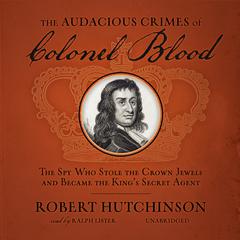 Play Audiobook Sample
Play Audiobook Sample
After Nuremberg: American Clemency for Nazi War Criminals Audiobook
 Play Audiobook Sample
Play Audiobook Sample
Quick Stats About this Audiobook
Total Audiobook Chapters:
Longest Chapter Length:
Shortest Chapter Length:
Average Chapter Length:
Audiobooks by this Author:
Publisher Description
After Nuremberg is about the fleeting nature of American punishment for German war criminals convicted at the twelve Nuremberg trials of 1946–1949. Because of repeated American grants of clemency and parole, ninety-seven of the 142 Germans convicted at the Nuremberg trials, many of them major offenders, regained their freedom years, sometimes decades, ahead of schedule. High-ranking Nazi plunderers, kidnappers, slave laborers, and mass murderers all walked free by 1958. High Commissioner for Occupied Germany John J. McCloy and his successors articulated a vision of impartial American justice as inspiring and legitimizing their actions, as they concluded that German war criminals were entitled to all the remedies American laws offered to better their conditions and reduce their sentences.
Based on extensive archival research (including newly declassified material), this book explains how American policy makers' best intentions resulted in a series of decisions from 1949–1958 that produced a self-perpetuating bureaucracy of clemency and parole that "rehabilitated" unrepentant German abettors and perpetrators of theft, slavery, and murder while lending salience to the most reactionary elements in West German political discourse.
Download and start listening now!
After Nuremberg Listener Reviews
Be the first to write a review about this audiobook!
About Robert Hutchinson
Robert Hutchinson is a fellow of the Society of Antiquaries of London, an associate tutor in church archaeology at the University of Sussex, and an expert in the archaeology of the Reformation. A keen historian and archaeologist, Hutchinson believes that Britain’s history provides stories of more drama and passion than could ever be made up for any television or film screenplay. He uses as many original documents as possible in researching his highly acclaimed books.
























